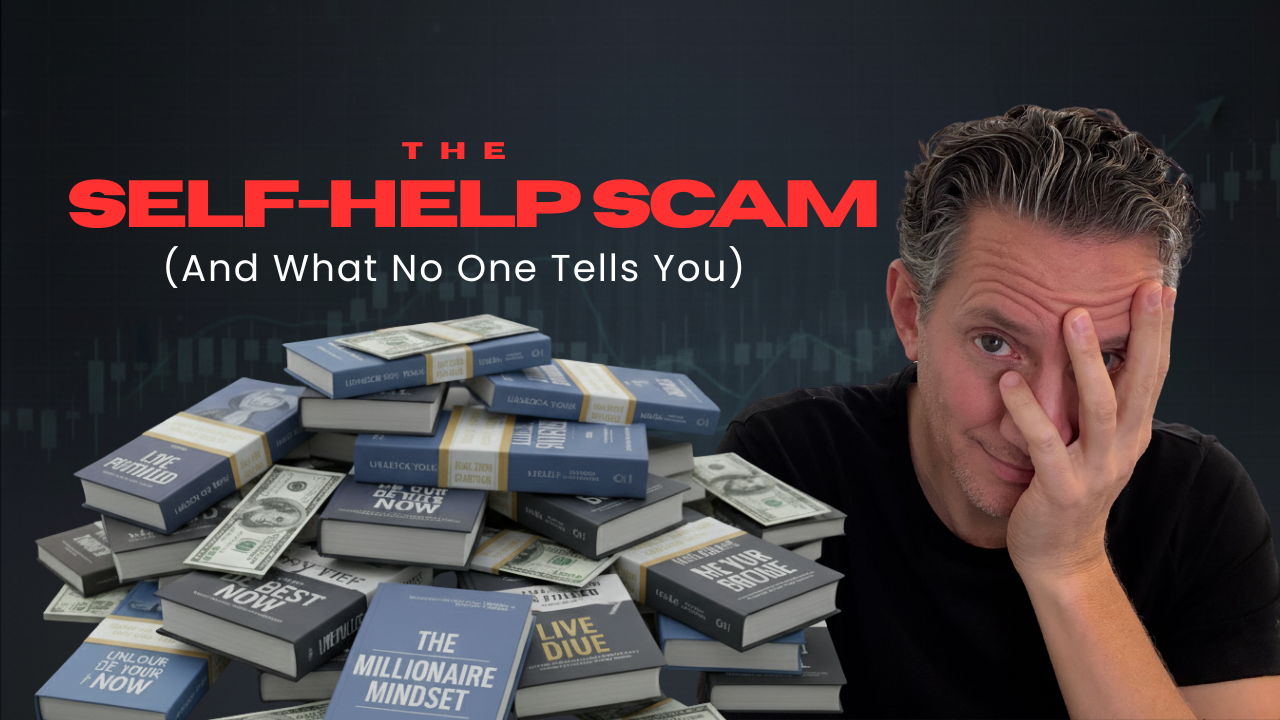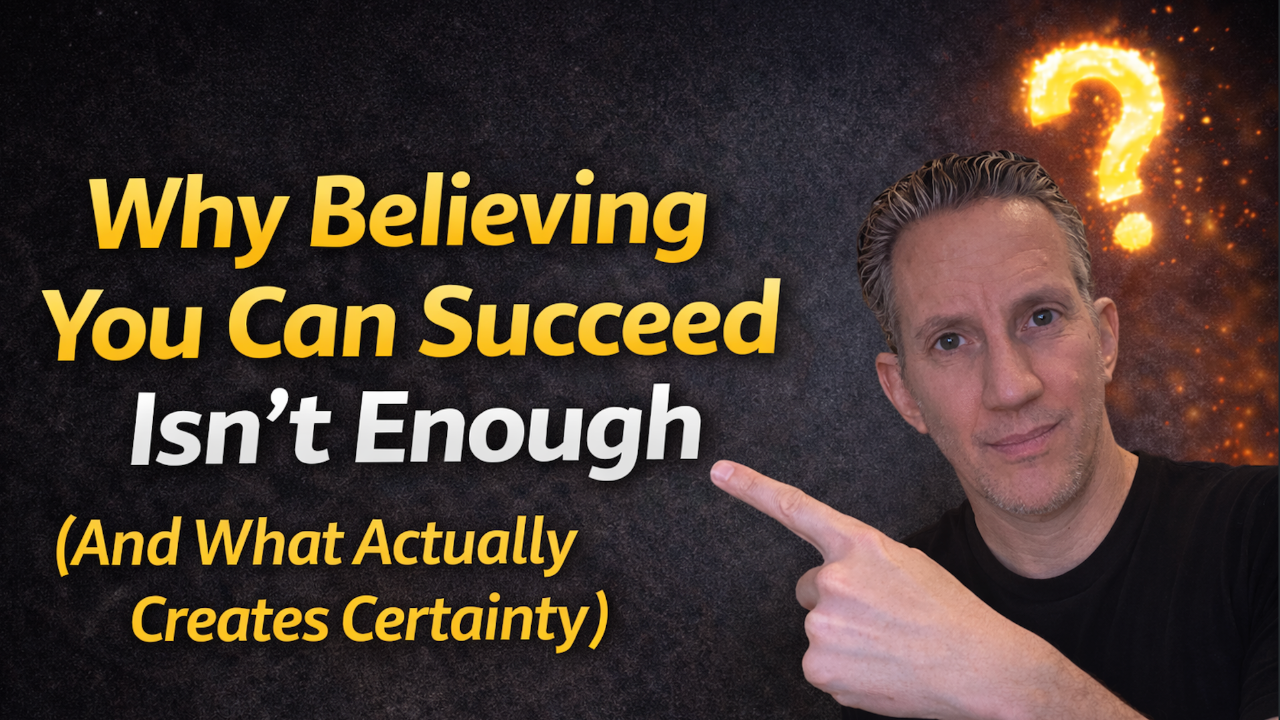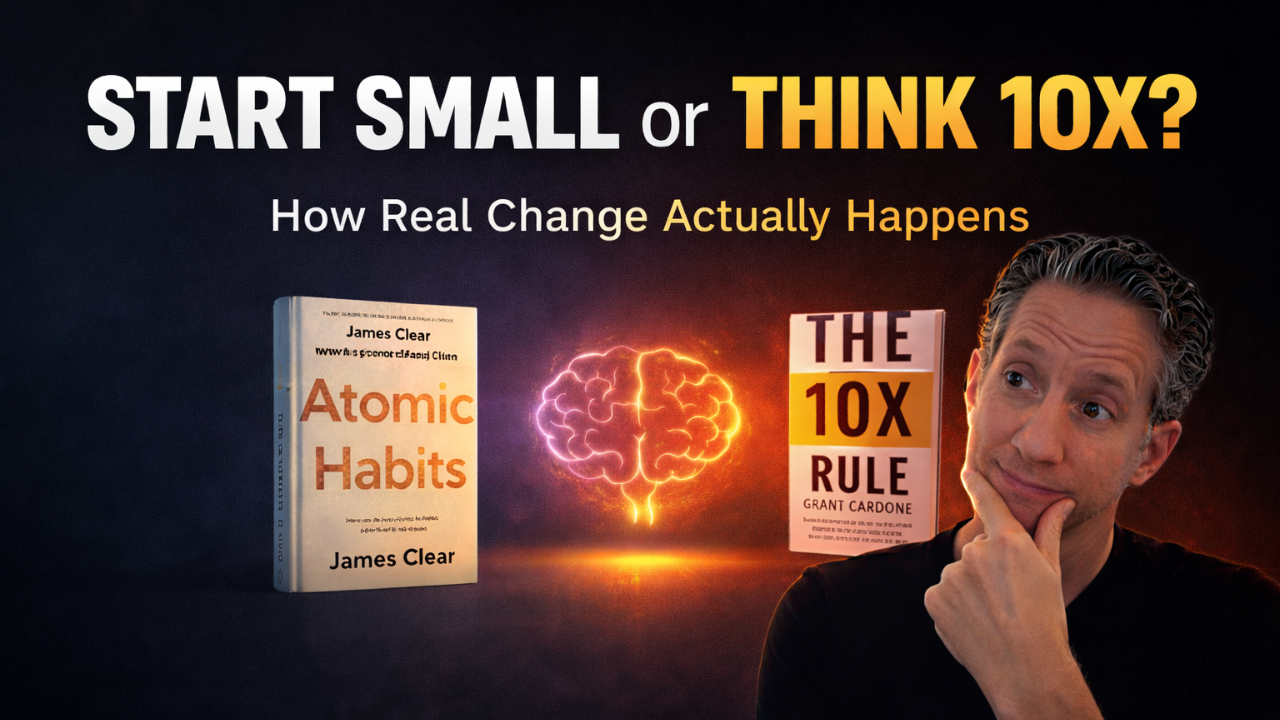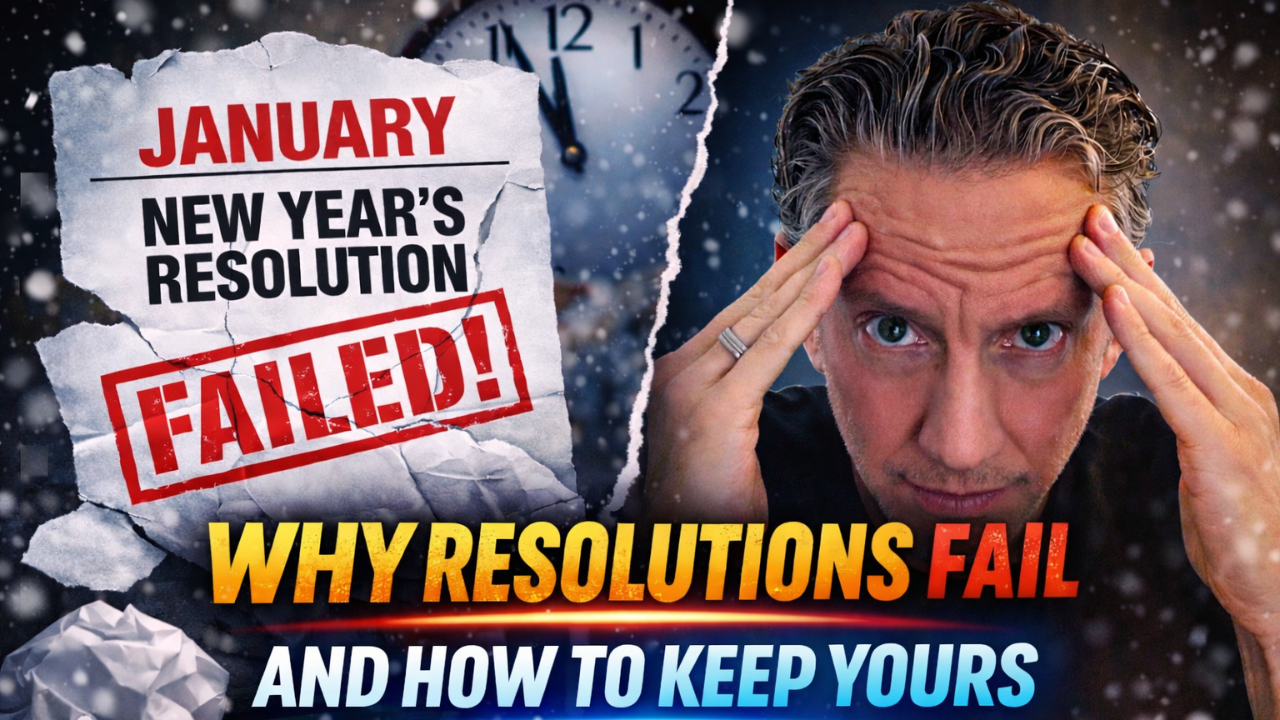The Self-Help Scam: And What No One Tells You

You finish the book, close the cover, and feel unstoppable.
For a moment it feels like your life just clicked into place. The author’s words light you up, your notebook is full of plans, and you’re ready to reinvent yourself.
Then a week later, the feeling is gone.
You don’t wake up earlier. You don’t follow the plan. The old doubts come back, whispering the same stories you thought you’d left behind.
It isn’t because you’re lazy. It’s because motivation, by its nature, burns bright and fast. That’s how a thirteen-billion-dollar self-help industry keeps growing. It sells sugar highs, not sustenance.
The Books We Love (and Why They Fall Short)
Some of these books are great.
Can’t Hurt Me by David Goggins.
Discipline Equals Freedom by Jocko Willink.
Turning Pro by Steven Pressfield.
They’re powerful stories of grit and transformation. I’ve read them, loved them, and felt the same surge of conviction everyone else does.
When I finished Can’t Hurt Me, I was ready to take on the world.
Those books work because they give us belief. They wake up the part of us that wants to fight harder and stop making excuses. They remind us that more is possible.
But they’re incomplete.
They show us the effect of transformation, not the mechanism. They describe what it feels like to evolve, but they don’t explain how to recreate it.
So when readers try to copy the discipline, it works for a while, until the old programming quietly pulls them back.
The Next Generation of Advice
Then there’s a second layer. Books like Atomic Habits by James Clear, Mindset by Carol Dweck, and Ego Is the Enemy by Ryan Holiday.
These take a step closer to the truth. They tell us that behavior follows identity, that lasting change comes from shifting who we believe we are.
And they’re right.
But even here, something is missing.
They name the lock, but they don’t give us the key.
They can describe identity, but they can’t tell us how to reprogram it.
So you finish the book, underline the passages that hit home, and feel wiser. But after a few weeks, the habits slip, and you’re back where you started.
And when that happens, you wonder if maybe you’re just broken.
The Crash That Follows the High
This is the real cost.
It’s not that the books are bad. They’re excellent at what they do. But they inadvertently create unrealistic expectations.
You get your hopes up, only to crash back down when the motivation fades.
The subconscious mind pulls you back to what’s familiar, and instead of realizing it’s programming, you blame yourself.
That’s the trap. Not that the authors are lying, but that the system keeps selling surface solutions, and then leaves people to carry the guilt when the hype wears off.
Why It Keeps Happening
Here’s the truth. Most of these authors don’t really know how they changed.
Goggins became who he is through trauma, repetition, and sheer will. Pressfield fought Resistance until something finally shifted. James Clear codified what worked after years of trial and error.
They all changed, but not because of a formula. They went through a subconscious rewiring process they couldn’t fully see.
Then they wrote about what it felt like, not how it happened.
It’s like someone stumbling out of a jungle alive and saying, “Here’s how I survived.”
Their story is real, but their map doesn’t work for everyone else.
The Science Behind the Relapse
Psychologists estimate that over eighty percent of New Year’s resolutions fail by February.
Not because people don’t care, but because willpower is temporary.
The subconscious mind’s job is to keep you safe and familiar, not successful.
So every time you try to break out of your comfort zone, it quietly pulls you back to equilibrium.
That’s why motivation fades. It’s not weakness, it’s wiring.
The Missing Piece
Real transformation doesn’t start with more discipline.
It starts by upgrading the subconscious system that runs your identity, beliefs, and emotional safety.
That’s the layer most self-help never reaches.
When you align your subconscious identity with your goals, motivation becomes optional.
Execution stops feeling like a fight. You don’t need to push yourself to act; you just do, because it’s who you are.
A New Kind of Work
The future of personal growth isn’t louder motivation, it’s deeper understanding.
It’s learning to work with the subconscious instead of against it.
As Viktor Frankl wrote,
“When we are no longer able to change a situation, we are challenged to change ourselves.”
Self-help gives us inspiration.
Subconscious work gives us transformation.
The Next Step
🎥 Watch the Video: Check out the video version of the self-help scam. You can watch it below or Here.
If you want to understand what’s really driving your patterns, take the free Mind Control Assessment below.
It will show you where your subconscious might be resisting growth, and how to start shifting it.
Because breakthroughs don’t begin with motivation.
They begin within.




